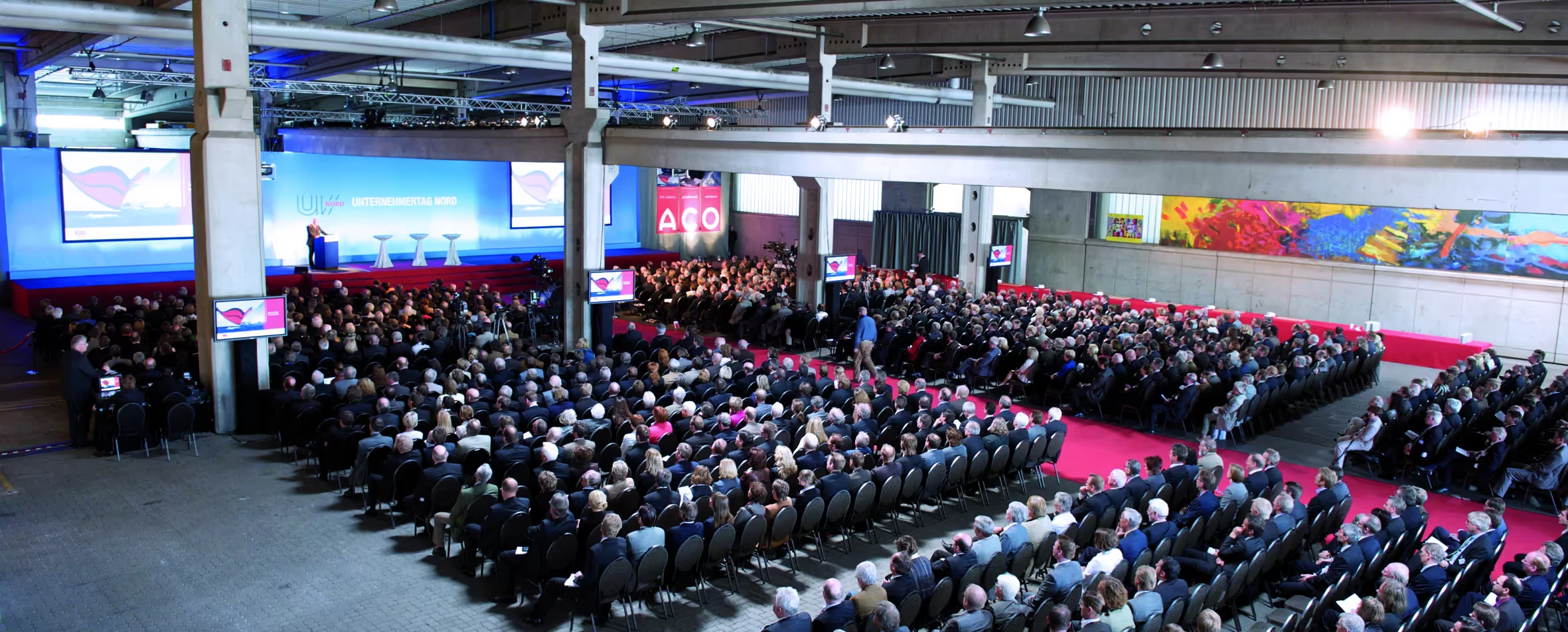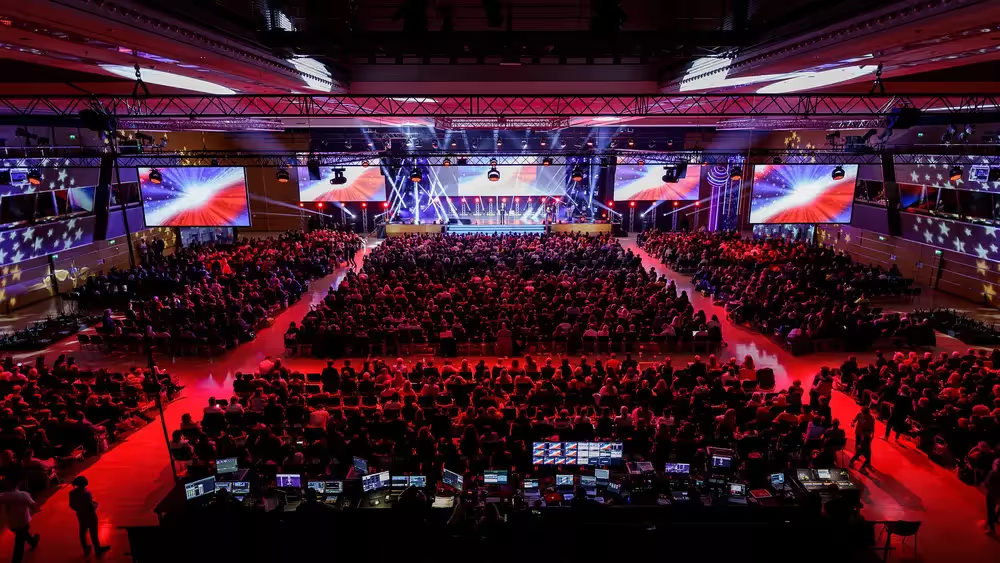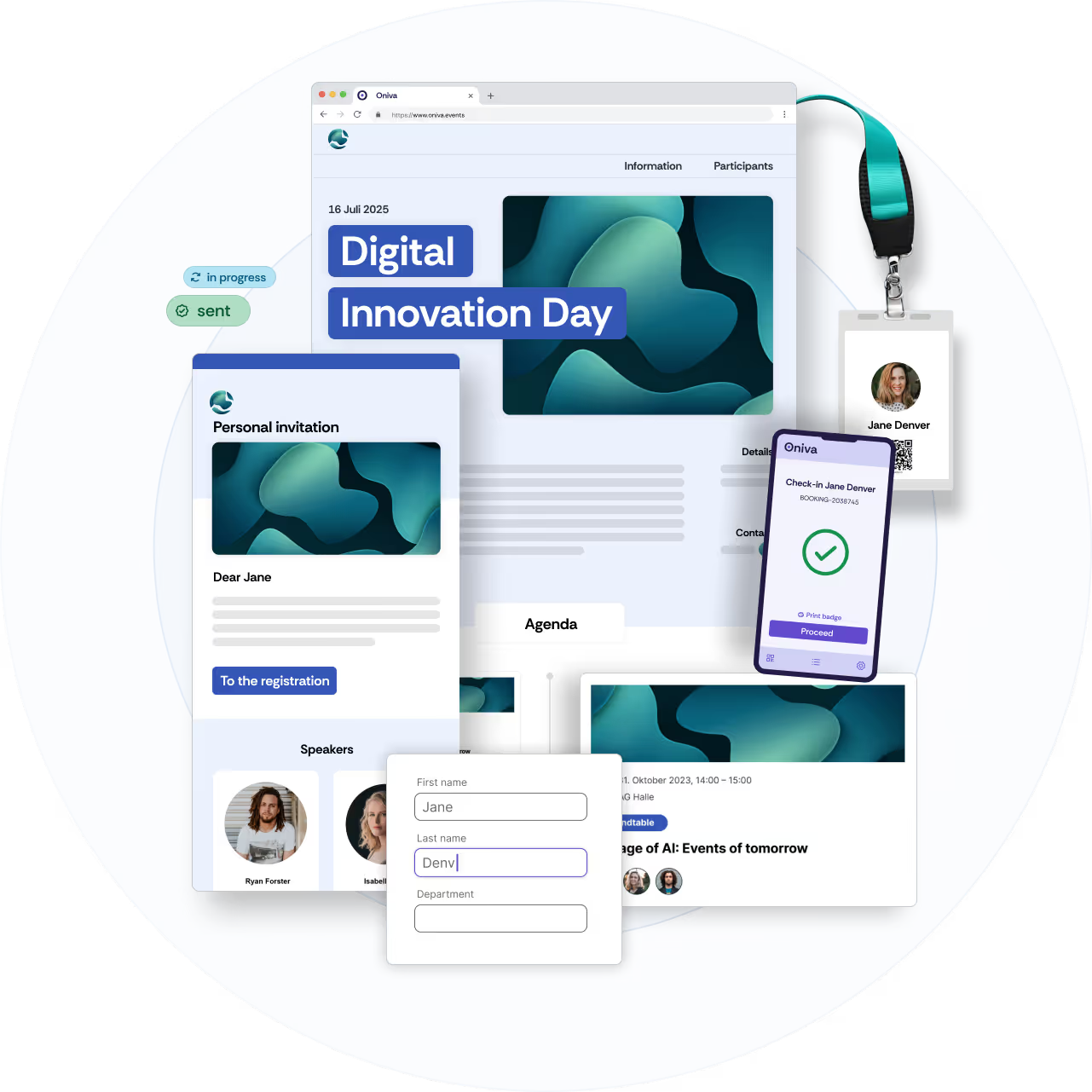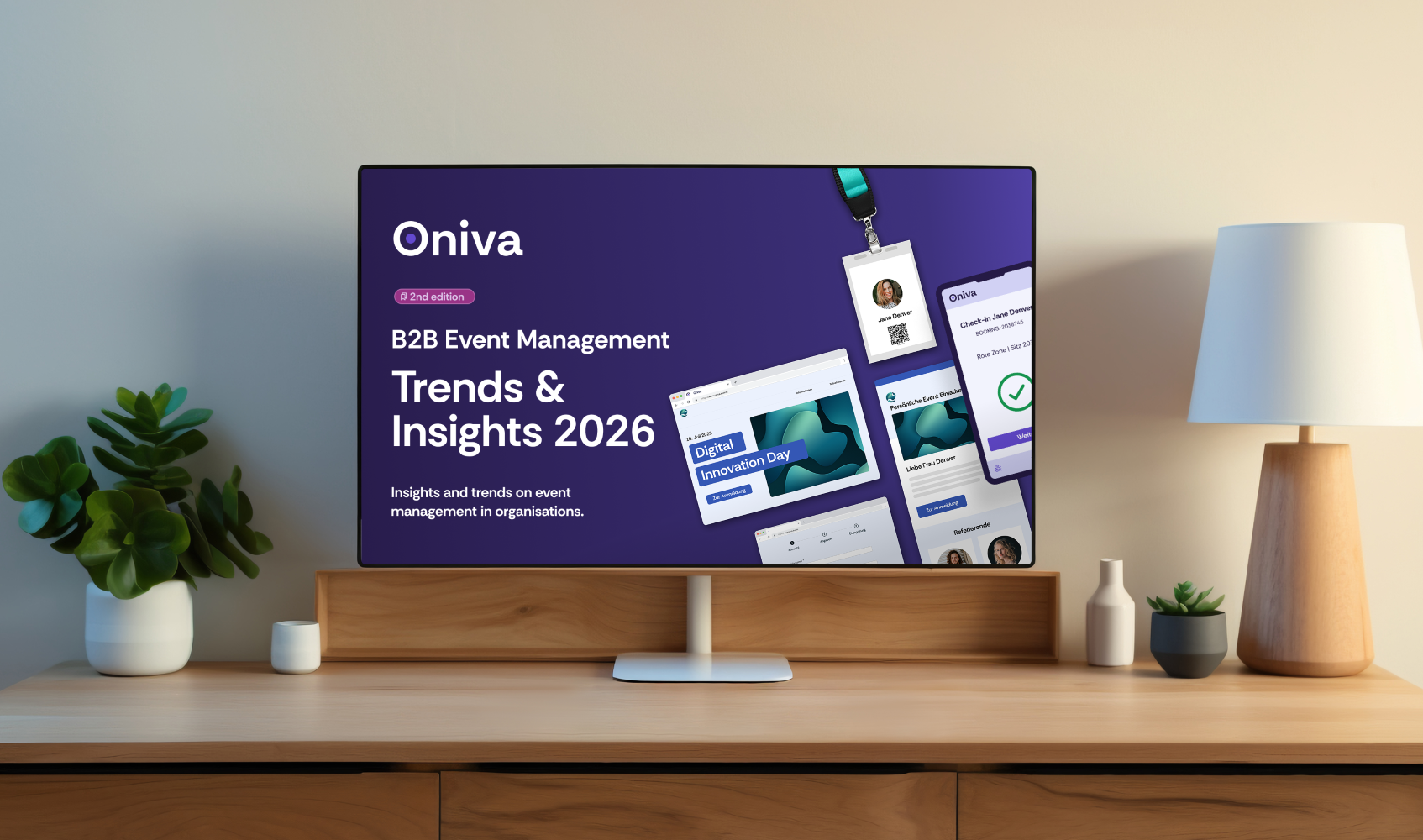What does digital transformation mean for business events?
Digital transformation is fundamentally changing the world of work. Business models, processes, and workflows are evolving. Corporate events and event management are also facing new challenges. This article shows you the impact of digitalisation on corporate events and how event managers can benefit from it.
What are the benefits of digitalisation for events?
Digitalisation has fundamentally transformed corporate events. What once started with digital invitations or simple online registrations has now become a comprehensive shift affecting content, organisation, and entire event processes. Digital technologies have therefore become a key success factor for events, whether organised by a large corporation or a mid-sized company.
The benefits are clear. Event management software allows many tasks to be automated, such as invitations, reminder emails, or check-ins. This saves time, reduces costs, and ensures streamlined processes. Collaboration in event planning has also become easier. Teams can now work together across departments and locations in real time while maintaining full oversight.
Another advantage is the increased engagement with participants. Live voting or feedback tools provide direct responses and foster more interaction. At the same time, digital event marketing helps events achieve a wider reach. Social media, targeted email campaigns, or retargeting can be used to reach audiences precisely and increase registration numbers.
Finally, hybrid and virtual formats open up new possibilities. Events are no longer limited to a single location but can be made accessible worldwide—whether via livestream, on-demand content, or virtual networking. This allows companies to extend their reach and prolong the event experience beyond the actual day.
What changes has digitalisation brought to events?
1. Digital transformation in event management
Digitalisation affects all aspects of event planning, from conception and participant management to event marketing. Traditional roles are evolving, tasks are increasingly automated, and participant expectations are rising. Event managers must be flexible in adopting new technologies to make events both efficient and emotionally engaging.
2. New roles for event professionals
A recent survey of around 700 event professionals found that only 47 % are traditional event managers. Often, employees from other departments, such as HR or administrative assistants, organise business events. Companies must ensure that these employees are supported by digital tools to guarantee smooth processes and a high-quality participant experience.
3. Skills shortages driving event activities
Shortages of skilled workers, especially in IT, are pushing companies to use events strategically. Business events are not only for recruiting new employees but also for strengthening corporate culture and employer branding. In Germany, projections indicate a shortfall of 663,000 IT specialists by 2040 (source). Digital solutions help achieve these goals efficiently while providing an outstanding participant experience.
4. Automation of event processes
Digital event management tools significantly increase productivity. Event invitations and reminder emails can be sent automatically, registration forms pre-filled, and QR code scanning at entry allows fast, smooth access. Productivity in participant management can increase by up to 85 %, depending on the number of attendees. Automation saves staff time, reduces errors, and ensures satisfied guests.
5. Personalisation of the event experience
Digital tools allow content, sessions, and communication to be tailored to participant needs. Personalised emails, recommendations for relevant sessions, or individual networking suggestions increase engagement and create a more immersive experience.
6. Content everywhere: live streaming and mobile-optimised content
Digital event solutions make events location-independent. Live streams, mobile-optimised content, and interactive programme elements allow participants to access content anytime and individually. Video content is gaining importance, and cost-efficient production technologies make high-quality content feasible even for smaller budgets.
7. Seamless event management systems
Modern event solutions integrate participant management, event communication, check-in, and live streaming seamlessly. Ideally, an event management solution is fully integrated into an organisation’s IT landscape. Systems that communicate smoothly with each other enhance the participant experience and make processes more efficient.
8. Security and data protection
Digital event management introduces new requirements for data protection and IT security. Events involve processing personal data, which must be protected appropriately. Concrete tips for handling personal data at events can be found in our blog post.
9. Marketing analytics for business events
Digital campaigns allow detailed analysis. In event marketing, KPIs such as participant satisfaction, the number of new clients acquired, or event reach are increasingly important. Companies can thus improve the efficiency of business events and make event marketing measurable.
9. Gamification and interactive formats
Gamification elements like quizzes, challenges, or live polls boost motivation and engagement. Digital tools make such formats easy to integrate, increasing participant attention and creating lasting learning experiences.
10. Data-driven event design
Analysing guest data, feedback, and engagement during events can help optimise future events. Which content was most popular? Which speakers impressed the participants? When do most attendees arrive at the entrance? What is the “no-show” rate? Insights like these allow events to be designed more efficiently and tailored to the target audience’s needs.
11. Sustainability through digital solutions
Digital event solutions help conserve resources. Invitations and tickets can be sent digitally, live streaming reduces travel, and knowing metrics like the “no-show” rate helps prevent food waste. Post-event content extends the impact of an event and enhances sustainability.
12. Hybrid events: combining physical and digital participation
Hybrid events blend on-site and online attendance. On-site participants experience the classic event, while online attendees enjoy a personalised experience via live streams and interactive tools. Digital platforms connect both groups, promoting interaction through chat, Q&A, or polls.
13. Desire for authenticity
Despite increasing digitalisation, the desire for real-life interactions is rising. Business events allow companies to present themselves authentically, build direct relationships with target audiences, and foster trust.
Conclusion
Digital technologies do not replace the emotional experience of an event—they enhance it. Event managers can optimise processes, increase participant numbers, and make events more efficient, sustainable, and engaging through the targeted use of digital event solutions. Digitalisation opens up new possibilities for a personalised, interactive, and sustainable event experience.



















.svg)















































































